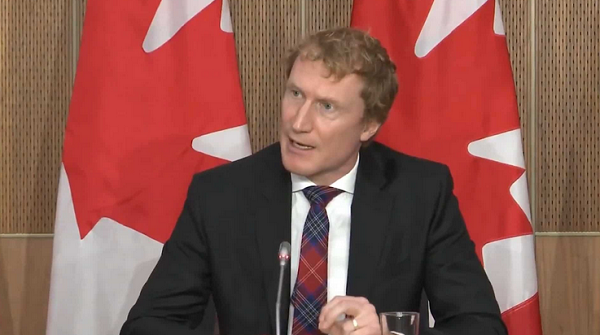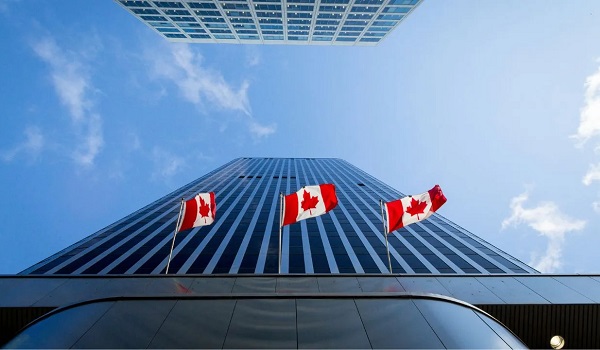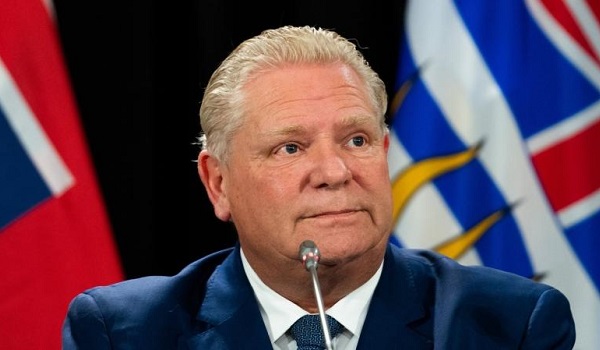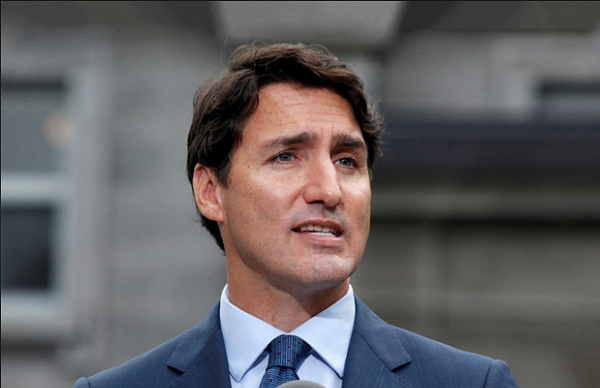Miller prepares for tough conversations with the U.S. on border security
Immigration Minister Marc Miller said he is ready for tough conversations with the U.S. on border security and signalled he would be prepared to shift the federal government’s approach toward the shared frontier if Canada’s security agencies advise it.
His remarks followed criticisms this week about the security of Canada’s border by Tom Homan, president-elect Donald Trump’s choice as border czar. Mr. Homan said in a broadcast interview that he expects “tough conversations” with the Liberal government to take place, alleging that the Canada-U.S. border provides a gateway for terrorists to slip into the United States.
At a press conference in Vancouver, Mr. Miller said he is looking forward to speaking directly to Mr. Homan. Mr. Miller said there is “an alignment of interests” with the U.S. in keeping the border secure, but there may come a time when discussions about altering the Safe Third Country Agreement will need to take place if the behaviour of the U.S. administration changes.
There are fears of an influx of asylum seekers coming to Canada after Mr. Trump warned that millions of people living in the U.S. illegally will be removed from the country in the biggest deportation drive in American history.
Mr. Homan said there is an “extreme national security vulnerability” along the Canada-U.S. border that he plans to tackle when Mr. Trump takes office. He said negotiations with Ottawa are necessary as Canada “can’t be a gateway for terrorists coming into the United States.”
“The problem with the northern border is a huge national security issue,” Mr. Homan told 7News in Watertown, N.Y., which is about 40 kilometres from a border crossing into Ontario.
He said he feared “special interest aliens” – people from countries the U.S. says sponsor terrorism – use Canada as a conduit into the U.S.
“Because they know, [there’s] a lot less, fewer officers here,” Mr. Homan said. “It’s one of the things I’ll tackle when I’m in the White House.”
Mr. Homan said the Trump administration will place far more agents at its northern border and end a policy of “catch and release,” instead locking up people who cross from Canada to the U.S. and then deporting them.
“If you’re gonna cross the St. Lawrence River or the lake or on foot, they need to know, you can come, but you’re going to be arrested. You’re not going to be released and we’re going to remove you. You’re not walking away. We’re gonna lock you up,” he said.
He raised the prospect of introducing a policy at the northern border similar to the Remain in Mexico Agreement that the last Trump administration introduced. Administered by the Department of Homeland Security, it compels migrants seeking asylum to remain in Mexico until their U.S. immigration court date.
“President Trump will need to work with Prime Minister Justin Trudeau and say look, ‘You need to enforce the immigration laws you have because this is a gateway to the U.S.,’” he said.
Mr. Miller said Canada and the U.S. have had “equal challenges with respect to the flow coming from the U.S. into Canada, and have taken measures to secure it and to close some of the ways people get in here in an irregular fashion.”
“That’s going to continue,” he added, saying he would keep on working in the national interest of Canadians, which he believes “is aligned with the current administration and the one that is coming in to replace it.”
“I expect that conversation to continue fully, and I expect there to be some tough conversations,” he added.
In 2017, Haitians streamed into Canada from the U.S. after the first Trump administration ended temporary protected status for Haitians who had fled to the U.S. The policy sparked an influx of Haitians claiming asylum at the “irregular” Roxham Road border crossing into Quebec. After talks with the U.S., Roxham Road was closed in 2023. The Safe Third Country Agreement was renegotiated, barring migrants making it to Canada through irregular crossings, including Roxham Road, from claiming asylum.
With an estimated 11 million undocumented residents in the U.S. facing removal, Bloc Québécois Leader Yves-François Blanchet has predicted that the “saga of Roxham Road” could begin again.
Mr. Miller said the agreement has allowed Canada to have a managed flow of migrants that is important to Canada’s economic relationship with the U.S.
“Are there changes to be made at any particular point in time when we see behaviours changing, when we see our security agencies advising us to adopt a different posture? I think absolutely,” he said. “Those are conversations that won’t be had in public.”
At a press conference on Wednesday, Deputy Prime Minister Chrystia Freeland said the first agenda item at the second meeting of the re-established cabinet committee on Canada-U.S. relations was the shared border. The heads of the RCMP and the Canada Border Services Agency reported on actions they are taking to secure it.
She expressed optimism that the Trump administration would want to work collaboratively on the security of “the longest non-militarized border in the world,” saying it was “a matter of mutual interest.”
“In that objective, there is no daylight at all between the goals of our two countries.”
This article was first reported by Reuters













